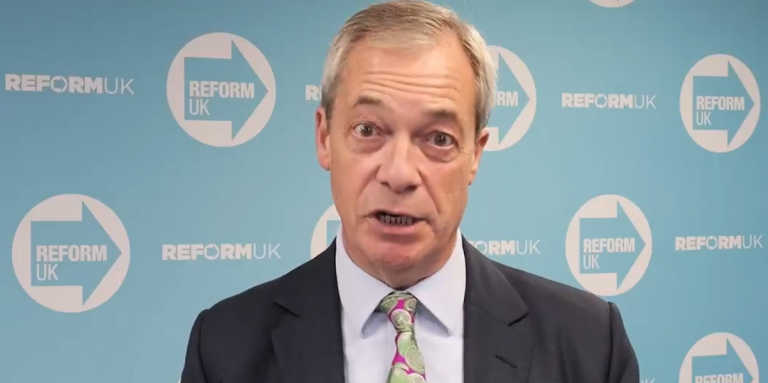
5 min read
Can the Treasury drive growth across the UK’s wider economy? Chetun Patel looks at its current plans and recent history
The Treasury has always been at the very heart of Britain’s quest for growth.
Chancellor William Gladstone observed Treasury control having enacted the Exchequer and Audit Departments Act of 1866, amongst other things, empowering him to deliver the principles of ‘sound finance’ that slashed the GDP to debt ratio and enabled a golden period of growth for the British economy. As Chancellor, Winston Churchill in 1929 referred to this as the ’Treasury view’, with growth stuttering following the return to the Gold Standard at a prohibitive rate. Does a ‘Treasury view’ frustrate or enable growth?
Chancellor Rachel Reeves is intent on the latter.
In her recent Mansion House speech, she made clear that ‘improving economic growth [was] at the heart of everything that I am seeking to achieve’. She considered it a ‘national mission’, unsurprising considering annual average gross domestic product growth has halved from 3 per cent between 1993 and 2007 to 1.5 per cent from 2009 to 2023 following the Great Financial Crisis (GFC).
The Chancellor cited two elements in her plan for economic growth.
The first, stability, is concerned with bringing public finances back under control, an area addressed in the recent Autumn Budget in which tax rises amounted to £40bn. It relates to Nigel Lawson’s famous Mais lecture as Chancellor in 1984 which identified a policy mistake in using microeconomic tools to fight inflation and macroeconomics to boost employment and proposed reversing their use. Price stability was seen as the prerequisite for investment and growth and the basis for fiscal rules that were formalised under the New Labour administration in 1998.
The other component of Reeves’ growth plan is the deployment of microeconomic policy to tackle public investment. Sir John Kingman, the former second permanent secretary to the Treasury (2015-16), described this in 2016 as the Treasury’s ‘third limb’ at a Strand Group event, King’s College London, referring to supply-side policy that extends beyond their traditional work on public finances and macroeconomic management. He highlighted the inherent conflict between the pursuit of ‘sound money’ and unlocking growth through micro-measures that would require investment.
It is the Treasury that is now driving growth policy forward.
Kingman felt that ‘with the passage of time and the sustained interest of a number of Chancellors’, the Treasury has succeeded in finding balance and has ‘learned how to walk and chew gum at the same time’. It seems that under Reeves’ plans, such a task will come under increased pressure as both ambition and prudence are sought. However, there is hope, as Kingman’s lecture reads as a blueprint for the Mansion House speech and its overarching aims.
He stated that the Treasury’s biggest contributions to supply-side policy were to fight bad ideas, such as regulation to inhibit competition and innovation or propping up failing industries, which were directly addressed by Reeves. Her speech identified the need to specifically support the growth industries citing the financial services sector as the ‘crown jewel in our economy’, whilst recognising that the regulatory changes following the GFC have gone too far. Essentially, the country’s financial plumbing is to be unclogged to drive growth across the wider economy. Unlike Gordon Brown’s ‘prudence for a purpose’ to establish economic credibility, Reeves is hoping for ‘prudence to persuade’ to crowd in institutional investment through pension and capital market reform.
The Mansion House speech also confirmed a drive towards greater competition. The Treasury is due to publish the ‘Financial Services Growth and Competition Strategy’ in Spring whilst Reeves committed Britain to pursue free and open trade that included a reset with Europe. It appears no door is closed in the country’s pursuit of growth. Kingman had hoped back in 2016 that his former colleagues would make a ‘fresh and persuasive case for openness and competition’ – it seems they were listening, albeit nearly a decade later.
In 2014, Nicholas Macpherson, the former permanent secretary to the Treasury 2005-16, suggested his department ‘exists to serve the government of the day’ and as such proposed an expanded ‘Treasury view of our time’. Reeves’ speech was imbued with these modern Treasury orthodoxies; a belief in free trade, that markets and competition generally work, faith in the supply side and ‘sound money’. Sustainable public finances are seen as necessary to enable supply-side measures to take effect and for crowding in private investment, unlocking a credibility windfall reminiscent of that gleaned by New Labour once the Bank of England was made operationally independent. In this sense, Treasury orthodoxy under Reeves is not anti-growth and the development of its ‘third limb’ makes it perfectly placed as the key department to deliver on the government’s core pursuit of improved output and productivity.
Kingman had faith in the Treasury to deliver on growth. He felt the idea of separating the Economics and Finance functions was futile as the locus of power would be concentrated within the area that held the purse strings, meaning any new department risked being a ‘sort of impotent Think Tank bleating from the sidelines’. A coordinating role involving the Department for Business and Trade would seem a natural step.
In 2022, Liz Truss removed the Treasury’s top mandarin Tom Scholar from his post as she felt that the department’s orthodoxy was intrinsically anti-growth. Two years on, under a new administration, it is the Treasury that is now driving growth policy forward. The ‘Treasury way’ reflects a multi-faceted, pragmatic organisation that Leo Pliatzky felt ‘stands for reality’. The hope is that Reeves and her team just got real on growth.
Chetun Patel is a Lecturer in ‘Chancellors and Treasury: Managing the British Economy’ and is part of the Strand Group in the Policy Institute at King’s.
PoliticsHome Newsletters
PoliticsHome provides the most comprehensive coverage of UK politics anywhere on the web, offering high quality original reporting and analysis: Subscribe




















+ There are no comments
Add yours